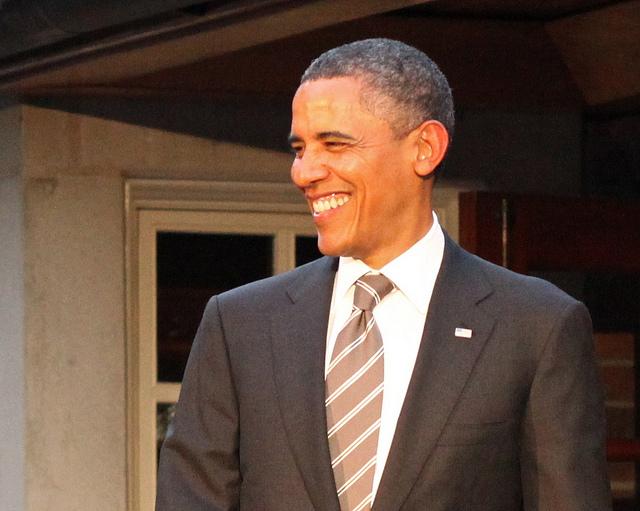I am a citizen of very strong beliefs. I believe billionaires should pay higher taxes, women and men must be completely equal, and teachers should earn six figure salaries. And to make these goals happen, our politicians and leaders must lead moderately.
This doesn’t necessarily mean that politicians should have moderate beliefs. I only mean that they should take moderate actions. If a representative or senator has some very strong beliefs towards one side or another, this is mostly harmless. But acting upon these beliefs requires a certain amount of restraint and a willingness to figuratively cut the baby in half. The approach must never be “all-or-nothing.” In order to create real, effective reform, leaders must create a solution that either side can agree too, even if either side is reluctant.
This has proven to be true up to very recently. Take, for example, our own representative, Kurt Schrader (D-OR-5). Recently, I was given the honor of talking to his legislative director (the person who oversees the Congressman’s agenda and approaches to policy), Chris Huckleberry, to discuss Schrader’s record and goals. One point he deeply emphasized was this Congress’ need for bipartisanship and compromise, and how Schrader has tried to encourage it.
“This is a town where you need the other side to move forward with policy objectives,” Huckleberry said of working in Washington. “This is an atmosphere where that’s almost impossible.”
Rep. Schrader is a member of the Blue Dog Coalition, a group of House Democrats that are centrist to conservative fiscally, mostly “more conservative than Obama.” They are an example of centrism in action, by word and deed. A large part of what they do includes building bridges with their Republican colleagues to reach middle-of-the-road compromises.
During the health care debates of 2009 and 2010, the Blue Dogs took a lot of heat from the more progressive wing of the Democratic Party for their part in making the final bill more conservative than the President initially intended. Hardcore progressives (often referred to as “Obama’s base”) wanted the bill to include a public option, a plan that would have given all Americans without health insurance a government-sponsored plan similar to Medicare. Blue Dogs in Congress took this proposal out because it seemed too extreme at the time.
In retrospect, it certainly may have been too extreme. I strongly supported a public option, but I understand the reluctance to implement one right now, and how unrealistic it would be if it were proposed again in this economic climate. The compromise, in the end, was not something that either side was fully pleased with, but it did install reforms that, once in effect, will be beneficial.
That is how compromise should happen. In the end, it is what is best not only for the requests of either side, but also for the general public. It is realistic, not too extreme to one side and needed reform. Many people, in Congress or otherwise, do not seem to understand the simple fact that compromise needs to happen for reform to be achieved. After all, baby steps are often the most vital ones.
Take the recent debacle over the federal budget, for example. The left thought the final deal would cut too much government spending while the right thought it cut too little. In particular, the deal had to be watered down in order to get any solitary measure of support from the “Class of ’10,” freshman Republicans elected largely with Tea Party support. Because of their refusal to compromise, Democrats had to sacrifice some of their bottom line in order for us to avoid default. It didn’t completely please anybody, but it did prevent the worst from happening.
This middle-ground deal was the bill that President Obama ended up signing. Though not perfect by either side’s measure, it is Schrader’s and Obama’s belief that it is the best solution that could have been made under those circumstances, and will ultimately make our debt lower. Schrader voted yes on this bill, but not without disagreement from his fellow Democrats.
“It’s hard for [Obama’s] base to accept that more progressive things cannot come out of this administration,” Huckleberry said. “President Obama has tried his best to reach the middle ground. That’s hard when you’re losing 700,000 jobs a month and have a trillion dollar deficit. At the very least, the deal will keep us from defaulting, which would be disaster.”
Governing does not depend on what is most beneficial towards somebody’s party or political affiliation. Governing depends on doing what is best for the people. Sometimes, this requires revolutionary reforms, such as the Civil Rights Act or President Lyndon Johnson’s Great Society, but this is an option saved for when compromise has been tried and failed.
As Thomas Jefferson wrote in the Declaration of Independence, the time for revolution has come only when multiple attempts at compromise have been met “with repeated injury.” We will know when that time comes; it’s approaching, but it’s not time quite yet.
Ninety-nine percent of the time, reform requires a middle ground. Solutions must be reached by people on both sides. If either side thinks that every single one of their demands must be met for something to be acceptable, they are not governing correctly. Heck, I’m a hardcore socialist liberal lefty, but I understand that true democracy requires majority rule – if it means some of my demands will be postponed, so be it.
“We’ve lost the art of compromise,” Huckleberry said. “We need to get that back.” President Obama and Representative Schrader are artists in this field. Why shouldn’t all of Congress be?






























































![At the bottom of the third inning, the Lions are still scoreless. Rowe stands at home plate, preparing to bat, while Vandenbrink stands off to the side as the next batter up. Despite having the bases loaded, the team was unable to score any runs. “It’s just the beginning of the season. We’re just going to be playing out best by June, [and] that’s where champions are,” Rowe said.](https://wlhsnow.com/wp-content/uploads/2024/03/IMG_3077-1200x900.jpg)







































![All smiles. The group poses for a photo with last year’s book, “This is Our House,” along with their award for third Best in Show. Meikle, who was an Editor-in-Chief for the yearbook last year as well, holds both and stands at the center of the group. “That was an amazing feeling, going and grabbing the third place award,” Meikle said. “All of it paid off. I cried so much over that book, being able to receive [the award] was one of the highlights of my high school career, it was like the coolest thing ever.”](https://wlhsnow.com/wp-content/uploads/2024/11/8bookpose_philly-1200x800.jpg)














